Economics Department
Economics Department:
"The most valuable of all capital is that invested in human beings."
Alfred Marshall
About the Department:
The Department of Economics at Rajkiya Mahavidyalaya Amori (Champawat) has played a vital role in imparting knowledge of economics to a large number of young students for the last 8 years. Most of the activities of the department are focused on social, economic and environmental issues. Along with teaching the prescribed curriculum as per affiliating University Soban Singh Jeena University Almora, the department continuously works to help students excel theirs future, career and life. The departmental activities arrange lectures, skill enhancement programs etc. National and state level workshops organized by the department provide students an opportunity to gain knowledge from eminent academicians and meet people from different fields. As a common practice, the department organizes discussion programs on Union and State Budget also.
Economics is one of the most vibrant subjects in modern times and offers huge employment opportunities as per NEP 2020.
Along with traditional courses like Micro Economics, Macro Economics, International Economics etc., suitable economic courses like Quantitative Techniques, Econometrics and Mathematical Economics open the doors of research with statistical insights for ours students. Our Economics program provides training to students to pursue careers in government services including civil, banking and finance, research consultancy, teaching, management and marketing sectors.
Objectives
The Department of Economics of the College which focuses on the holistic development of students, the specific objectives of the department are perfectly in sync with the vision and mission of the college. The objectives are-
➡️To train students to excel theirs career and life.
➡️To prepare ethically aware, socially committed and financially independent citizens.
➡️To guide students to set their life goals.
➡️To help students become ideal citizens.
➡️To boost the Student’s ability to apply micro and macro-economic principles and models to define and address market failures with the help of statistical tools for the better formulation of policies and planning.
➡️To stimulates the minds of the learners to identify the principles of prosperity, growth and economic change over time and explain the mechanism through which these variables operate in the economy.
➡️To provide the knowledge of current national and international economic issues so that they will be able to identify, correlate the national and international economic changes and monetary development through their knowledge of trade and monetary models.
Strategies:
With an aim to achieve high standards in terms of holistic student development, the department adopts the following strategies;
➡️Systematic coverage of the prescribed curriculum.
➡️Provision of online e-content with Youtube Lectures
.
➡️Provision of adequate teaching resources.
➡️Apart from the adequate collection of books in the college library, the department library also has a huge collection of books covering areas like microeconomics, macroeconomics, international economics, Indian economy, development economics, quantitative economics etc.
➡️Encouraging slow learners.
➡️Organizing various personality development programs.
➡️Organizing special workshops to inculcate economic research in students.
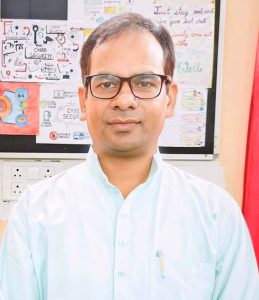
Dr. Dinesh Kumar Gupta
Assistant Professor (Economics)
Date 02-02-2024 Interim Budget Seminar
1
Interim-Budget-Seminar-Report
Date: 09-05-2024 Essay Competition
2
Economics Data
Date 07-06-2024 Essay Competition
3
Economics-Departmental-Activities
Central Budget 2024_Discussion with College Students Report 24-07-2024
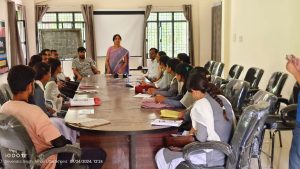
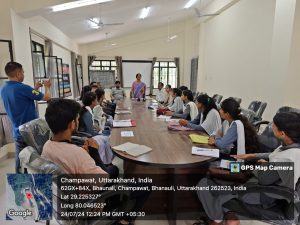

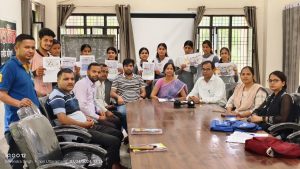
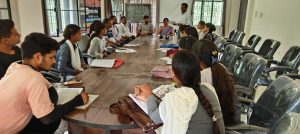
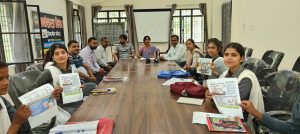
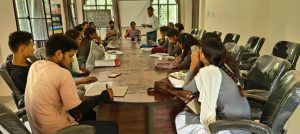
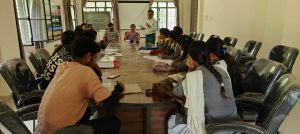
Economics - Career Counselling Class 18-04-2024
1
Economics - Career Counselling Class 18-04-2024

Budget_ News Paper 24 & 25-07-2024
1
Budget_ News Paper 24 & 25-07-2024

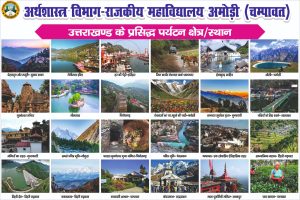
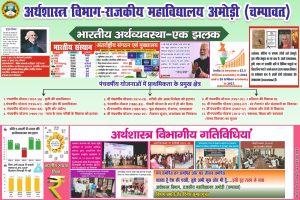
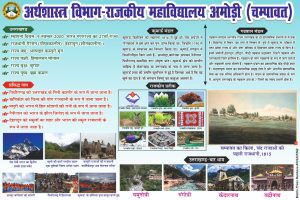
Central Budget 2024_Discussion with College Students Report 24-07-2024

Economics Teaching Plan as per Semester System of NEP
1
ECO-TEACHING-PLAN-NEP
"The most valuable of all capital is that invested in human beings."
Alfred Marshall
About the Department:
The Department of Economics at Rajkiya Mahavidyalaya Amori (Champawat) has played a vital role in imparting knowledge of economics to a large number of young students for the last 8 years. Most of the activities of the department are focused on social, economic and environmental issues. Along with teaching the prescribed curriculum as per affiliating University Soban Singh Jeena University Almora, the department continuously works to help students excel theirs future, career and life. The departmental activities arrange lectures, skill enhancement programs etc. National and state level workshops organized by the department provide students an opportunity to gain knowledge from eminent academicians and meet people from different fields. As a common practice, the department organizes discussion programs on Union and State Budget also.
Economics is one of the most vibrant subjects in modern times and offers huge employment opportunities as per NEP 2020.
Along with traditional courses like Micro Economics, Macro Economics, International Economics etc., suitable economic courses like Quantitative Techniques, Econometrics and Mathematical Economics open the doors of research with statistical insights for ours students. Our Economics program provides training to students to pursue careers in government services including civil, banking and finance, research consultancy, teaching, management and marketing sectors.
Objectives
The Department of Economics of the College which focuses on the holistic development of students, the specific objectives of the department are perfectly in sync with the vision and mission of the college. The objectives are-
➡️To train students to excel theirs career and life.
➡️To prepare ethically aware, socially committed and financially independent citizens.
➡️To guide students to set their life goals.
➡️To help students become ideal citizens.
➡️To boost the Student’s ability to apply micro and macro-economic principles and models to define and address market failures with the help of statistical tools for the better formulation of policies and planning.
➡️To stimulates the minds of the learners to identify the principles of prosperity, growth and economic change over time and explain the mechanism through which these variables operate in the economy.
➡️To provide the knowledge of current national and international economic issues so that they will be able to identify, correlate the national and international economic changes and monetary development through their knowledge of trade and monetary models.
Strategies:
With an aim to achieve high standards in terms of holistic student development, the department adopts the following strategies;
➡️Systematic coverage of the prescribed curriculum.
➡️Provision of online e-content with Youtube Lectures
. ➡️Provision of adequate teaching resources.
➡️Apart from the adequate collection of books in the college library, the department library also has a huge collection of books covering areas like microeconomics, macroeconomics, international economics, Indian economy, development economics, quantitative economics etc.
➡️Encouraging slow learners.
➡️Organizing various personality development programs.
➡️Organizing special workshops to inculcate economic research in students.
 |
Date 02-02-2024 Interim Budget Seminar
| 1 | Interim-Budget-Seminar-Report |
Date: 09-05-2024 Essay Competition
| 2 | Economics Data |
Date 07-06-2024 Essay Competition
| 3 | Economics-Departmental-Activities |
| Central Budget 2024_Discussion with College Students Report 24-07-2024 | ||
 |
 |
 |
 |
 |
 |
 |
 |
|
| Economics - Career Counselling Class 18-04-2024 | ||
| 1 | Economics - Career Counselling Class 18-04-2024 | |
| Budget_ News Paper 24 & 25-07-2024 | ||
| 1 | Budget_ News Paper 24 & 25-07-2024 | |
 |
 |
 |
| Central Budget 2024_Discussion with College Students Report 24-07-2024 | ||
Economics Teaching Plan as per Semester System of NEP
| 1 | ECO-TEACHING-PLAN-NEP |
